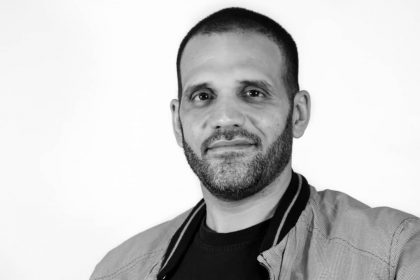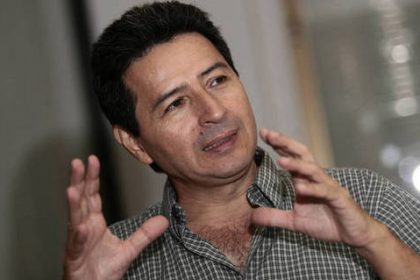ABOUT THE AUTHOR:

Calixto Ävila
Specialist Lawyer in Human Rights and Master in Public International Law. Provea representative in Europe.
Calixto Ävila │ The COVID-19 pandemic is an unprecedented historical test for international and regional organizations that questions the priorities, capacities, and functioning of States. Responding to the pandemic and saving the greatest number of lives essentially requires solidarity and responsibility not only between families, neighbors, and communities but also between nations. Just like neighbors, nations must cooperate and act responsibly, since the health of each other is, in the long run, the guarantee of their own well-being, and once the pandemic is overcome, the possibility of recovery of the other is also the possibility of recovery of the whole.
More specifically, this pandemic is a major test for the international human rights system and for States who must respect and guarantee those rights. Especially since the pandemic puts all human rights simultaneously, massively and globally at risk, with differences from one country to another and from one region to another. The impact in a developed country is and will be very different from the impact in a developing country, as well as between more vulnerable or less vulnerable regions, as is the case with Latin America and Africa concerning Europe.
Despite the limitations imposed to control the spread of the pandemic, intergovernmental human rights organizations are debating and drafting decisions and recommendations to the States so that they incorporate them when preparing and implementing public policies.
At the inter-American level, the Inter-American Commission on Human Rights (IACHR) adopted on April 10 Resolution 1/20 “Pandemic and Human Rights in the Americas,” with a catalog of 85 recommendations addressed to member states at the Organization of American States (OAS). This resolution seeks to: guide public policies to address the right to health and other economic, social and cultural rights; frame the states of emergency, protecting fundamental freedoms and the rule of law; protect groups in situations of special vulnerability and, stimulate international cooperation and the exchange of good practices, while respecting the international obligations”. The Inter-American Court of Human Rights also adopted on Thursday, April 9, the Declaration on “COVID-19 and Human Rights: Problems and challenges must be addressed with a human rights perspective and respecting international obligations.” The President of the Inter-American Court, Judge Elizabeth Odio Benito, said that the purpose of this declaration is that “the States bear in mind and do not forget their international obligations and the jurisprudence of the Court to ensure the soundness of human rights protection in the response and containment amid the pandemic ”
For its part, the International Labor Organization (ILO) published on April 7 its second report on “COVID-19 and the world of work” suggesting States give “responses at the political level”. Among other recommendations, the ILO affirms that “the responses at the political level must contemplate four pillars: Stimulate the economy and employment; Support business, employment, and income; Protect workers in the workplace, and find solutions through social dialogue ”.
Finally, the United Nations Human Rights Council, whose sessions were suspended in March due to COVID-19, has started informal sessions via teleconferences with the High Commissioner for Human Rights. The first of these occurred on April 9, with the participation of representatives of the States and some spokespersons for civil society. The High Commissioner took stock of the situation and proposed 7 lines of action to confront the pandemic and its effects: 1. To mitigate the effects of the pandemic on women and vulnerable groups; 2. To take measures to absorb the economic and social shock of the epidemic, and minimize the expansion of inequalities; 3. To protect health workers; 4. To refuse forms of nationalism or scapegoating to explain the situation; 5. To incorporate at all times, during and after the pandemic, national human rights institutions, civil society activists and human rights defenders; 6. To immediately lift or adapt sectoral sanctions hurting the right to health and human rights of vulnerable people, with effective humanitarian exemptions to ensure access to vital supplies and, 7. the Human Rights Council must be able to respond to all human rights problems related to COVID-19.
More than ever, intergovernmental organizations must show that they are up to the circumstances for which they were created. States must also act accordingly and comply with the standards of the binding international instruments. In particular, international human rights institutions are already guiding political actors on how to respond to the crisis while respecting the human rights of the population. Their recommendations must be heeded as they are the product of the collective experience of humanity, especially at times when we face a hazard that does not distinguish borders.
ABOUT THE AUTHOR:

Calixto Ävila
Specialist Lawyer in Human Rights and Master in Public International Law. Provea representative in Europe.





